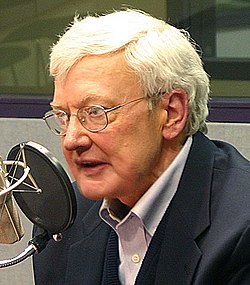This article relies largely or entirely on a single source .(August 2025) |

The Great Movies is the name of several publications, both online and in print, from Roger Ebert, an American film critic and columnist for The Chicago Sun-Times . The object was, as Ebert put it, to "make a tour of the landmarks of the first century of cinema", [1] by writing essays on films Ebert considered particularly well-made, important or influential.
Contents
The Great Movies was published as four books:
- The Great Movies, published in November 2003 (544 pages, Three Rivers Press, ISBN 978-0767910385)
- The Great Movies II published in February 2006 (517 pages, Three Rivers Press, ISBN 978-0767919869)
- The Great Movies III, published in October 2011 (440 pages, University of Chicago Press, ISBN 978-0226182094)
- The Great Movies IV, published in September 2016 (288 pages, University of Chicago Press, ISBN 978-0226403984)